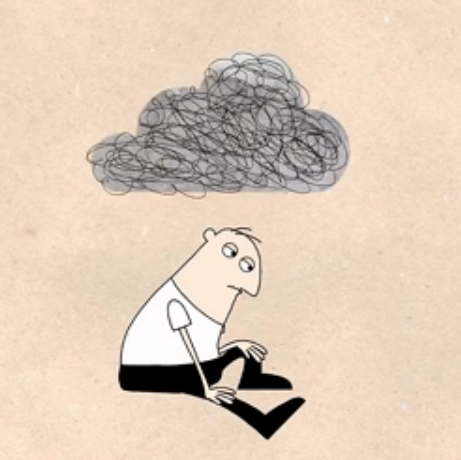Sadness is part of the human experience,
悲伤是人类必经的感受,
but for centuries there has been vast disagreement over exactly what it is and what, if anything, to do about it.
但几个世纪以来,人们既没有判断出它到底是什么也不知我们应该以怎样的态度去面对它。
In its simplest terms, sadness is often thought of as the natural reaction to a difficult situation.
简单来说,悲伤常被人们理解为面对艰难处境时的自然反应。
You feel sad when a friend moves away or when a pet dies.
朋友搬走了或是宠物死了你都会感到悲伤。
When a friend says, "I'm sad," you often respond by asking, "What happened?"
当一个朋友说“我好伤心”时,你经常会问他们“发生什么了?”
But your assumption that sadness has an external cause outside the self is a relatively new idea.
但你对于悲伤是由外界因素导致的假设还是个比较新的想法。

Ancient Greek doctors didn't view sadness that way.
古希腊医生可不是这么看待悲伤的。
They believed it was a dark fluid inside the body.
他们觉得悲伤是体内一种深色的液体。
According to their humoral system, the human body and soul were controlled by four fluids, known as humors,
根据他们创造的体液系统理论,人体和灵魂是由四种体液控制的,
and their balance directly influenced a person's health and temperament.
于是它们之间的平衡会直接影响到一个人的健康和性情。
Melancholia comes from melaina kole, the word for black bile, the humor believed to cause sadness.
精神忧郁来自于一种叫Melaina Kole,也就是黑胆汁,一种被认为会产生悲伤的体液。
By changing your diet and through medical practices, you could bring your humors into balance.
改善伙食和医疗手段都可以有效地使你的体液处于平衡状态。
Even though we now know much more about the systems that govern the human body,
虽然现在我们对控制人类身体的系统了解已经很多了,
these Greek ideas about sadness resonate with current views,
这些古希腊人有关于悲伤的想法还是可以和当今的观点产生共鸣,
not on the sadness we all occasionally feel, but on clinical depression.
不仅仅是我们偶尔会感到的悲伤,也包括医学上所说的忧郁。
Doctors believe that certain kinds of long-term, unexplained emotional states
医生们认为有些长期无法解释的感情状态
are at least partially related to brain chemistry, the balance of various chemicals present inside the brain.


